- Georg Simmel’s Philosophy of Money: An Introduction
- Georg Simmel’s Philosophy of Money: 1. Value and Money
- Georg Simmel’s Philosophy of Money: 2. The Value of Money as a Substance
- Georg Simmel’s Philosophy of Money: 3. Money in the Sequence of Purposes
- Georg Simmel’s Philosophy of Money: 4. Individual Freedom
- Georg Simmel’s Philosophy of Money: 5. The Money Equivalent of Personal Values
- Georg Simmel’s Philosophy of Money: 6. The Style of Life
Having laid the philosophical groundwork for the conception of money, Simmel’s second chapter provides, loosely speaking, a genealogy of money, showing that as money is introduced into a barter economy, it gradually loses any specific character as it swells to encompass and merge distinct notions of value. Money becomes a totalizing, unifying substance, reifying the unity of a polity. Simmel develops a couple concurrent analogies in this chapter, particularly between money and love and money and politics. Working them out is tricky, particularly because Simmel seems to be invoking Kant’s first and third critique simultaneously, and I’m going to leave some gaps here in order to keep this entry at a manageable length. What I’ll present are the core schemata that Simmel sets up for conceptualizing money in terms of these other things.
The fundamental contrast is between the specific and the general. In this passage, Simmel analogizes money’s role to that of Kantian cognition (i.e., providing categorical, abstract form for concrete, sensible content), and specifically the transcendental unity of apperception. As money becomes more generic, it becomes less tangible and more conceptual:
The greater the role of money becomes in concentrating values—and this occurs not simply through the increase in its quantity, but through an extension of its function to more and more objects and the consolidation of even more diverse values in this form—the less it will need to be tied to a material substance; for the mechanical sameness and rigidity of a substance will become increasingly inadequate compared with the abundance, mutability and variety of values which are projected upon and consolidated in, the concept of money.
This process might be called the growing spiritualization of money, since it is the essence of mental activity to bring unity out of diversity. In the sensible world, things exist side by side; only in the sphere of the mind are they integrated. The elements of a concept form a unity, as do subject and predicate in a proposition; there is no equivalent in the world of directly perceived phenomena. The organism, as the bridge between matter and mind, is the first step towards such an equivalent; interaction merges its elements and it strives constantly for an unattainable perfect unity. Only in the mind, however, does interaction become real integration. The interaction of exchange brings about a mental unity of values. The spatially extended substance is only a symbol of money, because the disconnectedness of what exists as substance contradicts the nature of money as an abstract representation of interaction. Only to the extent that the material element recedes does money become real money, that is a real integration and a point of unification of interacting elements of value, which only the mind can accomplish.
Simmel stresses, however, just how alien this universality is to our own most intuitive systems of values. Just as he ended the previous chapter on money’s role in the singular calculus of human suffering, he begins by describing two incommensurable value systems, those of pleasure and pain:
The basic assertion of pessimism is that there is in life a considerable excess of suffering over happiness, that living beings, considered as a whole or on the average, experience much more pain than pleasure. It is quite impossible to make such an assertion, which presupposes that pleasure and pain can be directly balanced and set off against each other as two qualitatively equal magnitudes with opposite signs. In reality this is impossible because there is no common measure. When we suffer we cannot experience what amount of pleasure would be necessary to compensate for the suffering. How then can we explain that such comparisons are always being made; that in everyday affairs, in a coherent destiny, in the sum of an individual life, we judge that the quantity of enjoyment has fallen below or has exceeded the amount of pain? It is possible only because the experience of life has taught us, more or less strictly, how fortune and misfortune are actually distributed, how much suffering has to be accepted in order to attain a certain amount of pleasure, and how much of each is man’s usual portion. Only when we have formed some notion of this kind, no matter how unconscious and vague, is it possible to say that in a particular case a pleasure has been paid for too dearly—i.e. with too large an amount of suffering—or that in one individual life the pain exceeded the happiness. The average itself cannot be ‘disproportionate’ because it is the standard by which we determine whether the relation between feelings in an individual case is fair or not. In the same way, it is impossible to say that people on the average are tall or small, since the average provides the standard by which the individual is measured; and it is misleading to say that ‘time’ passes quickly or slowly, since the passage of time—i.e. the average experienced pace of events—is the measuring rod by which the quickness or slowness of the passage of single events is measured, while the average itself is neither quick nor slow. Thus, the pessimistic assertion that the average human life contains more suffering than enjoyment is methodologically just as impossible as the optimistic assertion of the contrary. The sensation of the total quantities of pleasure and pain (or, differently expressed, the average of them for an individual or for a period of time) is the original phenomenon, whose components cannot be compared with each other because this would require a measure independent of both and yet comprehending both equally.
…In so far as, in individual cases, the elements repeat the proportions that occur in the total quantities, then the elements have a’correct’, i.e. normal, average or typical relation, and deviations appear as a ‘preponderance’ or ‘disproportion’ of one element. In themselves, the elements in individual cases have no more a right or wrong, an equal or unequal, relation than have the totalities; they acquire such a relation only through the total quantities being established as an absolute, in terms of which the singular, the relative, is calculated. The absolute is not subject to the rules of comparison that it makes possible for the relative.
In other words, it is through a process of cognition, abstraction, and holistic conceptualization that we arrive at a way to reconcile two independent systems of value (in this case, pleasure and pain). It’s only because we have some common, societal conception of what are expected amounts of pleasure and pain that we can say that a person has a deficit of one in favor of the other. But that is really only calculated as a deviation from the two averages, not a reconciliation of the two value systems. This is a crucial point, for it is the same way that money operates–not by literally reconciling value systems, but by providing a universal, numerical unit of measure by which values of differing systems can be exchanged. Yet the establishment of these measures is purely an “objective” societal construct which floats free of any single system of values. If Platonism were true, then money could be said to embody the Form of value. But since Simmel is a nominalist, money is merely value-agnostic, and its abstraction is purely a human construct:
The value of things— ethical as well as eudaemonistic, religious as well as aesthetic—hovers, like the Platonic ideas, above the world; a realm that is governed by its own alien and intangible inner norms, but that lends relief and colour to reality. Economic value originates by derivation from these primary, directly experienced values, by weighing the objects in which values are incorporated against each other, so far as they are exchangeable. Within this area, however, economic value, no matter how it has constituted itself, has the same peculiar relation to the individual objects as has value in general. It is a world apart, in which the objects are classified and arranged according to particular norms which are not inherent in the objects. Objects that are ordered and related by their economic value form a cosmos that is entirely different from that formed by their natural and immediate reality. If money were really nothing but the expression of the values of things external to money, it would be related to things just as the idea, which Plato conceived also as a substantial, metaphysical entity, is related to empirical reality.
Thus, as value-neutral symbols (money) replace “real” goods, there is simultaneously a homogenization, a loss of specific significance, and a gain in commensurability:
One of the greatest advances made by mankind—the discovery of a new world out of the material of the old—is to establish a proportion between two quantities, not by direct comparison, but in terms of the fact that each of them relates to a third quantity and that these two relations are either equal or unequal. Two performances of entirely different quality are given; they become comparable if they display the same strength of will and self- sacrifice in relation to the required effort. Two destinies reveal very different degrees of happiness; yet they acquire a measurable relation if each is interpreted according to the extent to which its bearer deserved his fate. Two movements with quite different velocities can be related and equated if we observe that the acceleration from the initial stage is identical in each case. A kind of homogeneity emerges—and not only for our feelings —between two elements which, differing in their substance, have an equal relation to a third or fourth element. The one thereby becomes a factor for the calculability of the other. Furthermore, no matter how incomparable two people may be in their ostensible qualities, the relation of each to another person establishes an equality between them; as soon as one of them shows the same degree of love or hatred, domination or subjection, towards a third person as the other does towards a fourth person, these relations have established the separateness of personal identity. As a final example: the perfection of works of art of different kinds could not be compared and their values could not be arranged on a scale, unless each of them first had a definite relation to the particular ideal of its own kind. From the problem, the material and the style of each work of art, there evolves a norm which the actual work approaches more or less closely; and it is this relation that makes it possible to compare even the most diverse works of art. The possible conformity of such relations to a norm produces an aesthetic cosmos, a precise order, an ideal homogeneity in relation to value, from the individual works which are initially quite heterogeneous. This is not only true for the world of art. Out of the material of our isolated valuations there develops a pattern of graded significance. Disharmony is experienced only as a result of the desire for a consistent order and an inner relation of values. We owe this essential feature of our world view to our ability to balance against each other not only two things, but also the relations of these two to two others, and so unite them by judging them equal or similar. Money, as a product of this fundamental power or form of our mind, is not only its most extreme example, but is, as it were, its pure embodiment. For money can express the value relation between things realized in exchange only by equating the relation between a specific sum and some general denominator, with the relation between a corresponding commodity and the totality of commodities available for exchange. Money is not, by its nature, a valuable object whose parts happen to have the same proportion to each other or to the whole that other values have to each other. The significance of money is only to express the value relations between other objects. It succeeds in this with the aid of man’s developed intelligence, which is able to equate the relations between things even though the things themselves are not identical or similar. This ability only gradually evolves from the more primitive capacity to judge and express the identity or similarity of two objects directly, which is the source of the phenomena mentioned earlier that reflect the attempt to establish a direct relationship between money and its exchange values.
But the commensurability is grounded in nothing but the sensus communis. In keeping with Simmel’s dynamism, he paints the process of human experience as a back and forth journey between the sensible and the abstract–between form and content. This is exactly in keeping with Kant’s famous line “Thoughts [form] without content are empty, intuitions [content] without concepts are blind,” except that cognition has been naturalized into a dynamic system of life and experience. We do not synthesize them so much as oscillate between them to varying degrees. We lose substance as we move toward the universal, which is always inadequate to capture reality; we lose coherence as we move toward the specific, which can never be grasped in its immediacy. While moving away from wholly particular content is necessary for society to grow, a total embrace of a particular static symbolic form would result in a meaningless, boring existence. Consequently, any single symbolic form is inevitably taken apart, revised, and reconstructed.
On the one hand, the symbolic representation of reality increases, but at the same time, as a counter-movement, symbols are constantly analysed and reduced to their original foundation.
Only through the fact that the value of things has become detached from the objects and has acquired an independent existence in a specific substance is it possible for money to develop interests, movements and norms that, on occasion, act contrary to those of the symbolized objects. The activities of private enterprise, which are connected with money, promote the social interest of the production and consumption of goods so long as they remain merely endeavours, whereas the final attainment of their ends might undermine the aims of society. This type of situation is most frequently and decisively produced in those cases where emotional impulses strive for a final objective without being aware that all the hoped-for satisfaction is the consequence of relative advances, and may perhaps turn into its opposite when the goal is reached. I would call your attention to love, which receives its content and colouring from the desire for the closest and most permanent union, and frequently loses both when its object is attained; or to political ideals, which provide the strength and spiritual fervour in the life of whole generations but which, once they are realized, do not bring about an ideal condition, but practical materialism, torpidity and philistinism; or to the longing for a peaceful and undisturbed way of life, which is the goal of all effort and labour, yet which once accomplished often ends in idleness and inner dissatisfaction. It has indeed become a platitude to say that even happiness, though it is the object of all our endeavours, would be mere boredom if it were ever achieved as an eternal state.
So the point of money, just as with political ideals or love itself, is not to provide an ultimate goal. Rather, they make certain processes possible (commerce, politics, love) that would be beyond our conception without universalist abstraction. The telos of any of these things, however, is a mirage provided by the sheer generic emptiness of the symbol. “Love” gains meaning in the context of a particular relationship; “politics” gains meaning through a particular implementation.
In a passage that anticipates Karl Polanyi’s The Great Transformation, Simmel paints the back and forth political movement between individualism and socialism as a similar process of journeying toward a symbolic ideal, only to find that as progress is made, the original ideal loses its connection to the concrete circumstances which produced it:
The proportion in which an element and its opposite are combined and co-operate are naturally variable, sometimes in the sense that one element steadily increases while the other declines, so that the trend of the development appears to be one in which one element will finally supplant the other. But as soon as this happened and every trace of the second element disappeared, the sense and effectiveness of the first element would also be paralysed. This happens, for instance, with the opposition between individualism and socialism. There are periods in which the latter determines historical development, not only in reality, but also as an inference from ideal convictions and an expression of a developing conception of society which strives toward perfection. But if, in the party politics of such an age, it is then concluded that, since all progress depends upon the growth of the socialist elements, their triumph will produce the most advanced and ideal state of things, this overlooks the fact that the whole success of socialist measures depends upon the circumstance under which they are introduced into an individualistic economic system. The progress resulting from the relative increase of socialist measures does not justify the conclusion that their complete implementation would represent further progress. It is the same with periods of increasing individualism. The significance of individualistic measures depends upon the fact that centralized socialist institutions continue to exist; these can be progressively reduced, but their complete disappearance would lead to unanticipated results differing widely from those that individualism had previously brought about. In the field of art, the contrary tendencies towards naturalism and towards mannerism show a similar pattern.
By discussing the symbolic and the concrete in the context of politics and art, Simmel lays the ground for the case of money. Money is special. It is more difficult to grasp than “love” or “socialism” or “naturalism” because it has no conceptual ideal. It is, at best, a meta-ideal, a container for particular ideals–which, without content, are themselves empty. For you programmers, money is the base class, java.lang.Object. Money is only pure exchangability, the ability to move between any value systems. It is “the mere expression of the reciprocally measured value of things.”
The relationship between the intrinsic value of money and its purely functional and symbolic nature may develop in analogous fashion; the latter increasingly replaces the former, but a certain measure of the former has to be retained because the functional and symbolic character of money would lose its basis and significance if this trend were brought to its final conclusion. It is not only a formal analogy that is in question here, but the unity of the deeper meaning of life, which is expressed in this external similarity. In practice, we can only cope with the variety of elements and tendencies that make up life by allowing our behaviour, in every context and at every period of time, to be governed by a uniform and one-sided principle. But in this way the diversity of reality catches up with us again and again, and weaves our subjective striving, along with all those factors that oppose it, into an empirical existence which allows the ideal to enter reality. This does not imply a denial of the ideal; life is adapted to such absolute strivings as its elements, in the same way as the physical world is adapted to motions that, if left unimpeded, would have inconceivable consequences, but that, as a result of their meeting with counterforces, produce the orderly world of natural events. If the practical world is formed in such a way that our will is focused upon eternity and only attains the world of reality by being deflected and rebuffed, then here too the structure of practical life has predetermined the theoretical structure. On innumerable occasions, our concepts of things are made so unalloyed and absolute that they do not reflect experience, and only their qualification and modification by opposing concepts can give them an empirical form. However, these concepts are not for that reason thoroughly bad; it is precisely through this unique procedure of exaggeration followed by retraction in the formation of concepts and maxims, that a view of the world which is in conformity with our understanding emerges. The formula through which our mind establishes a relation with the oneness of things, which is not directly accessible, by supplementing and reproducing it, is in practice as well as in theory a primary too-much, too-high, too-pure. It gains the consistency and scope of reality and truth only by means of restraining contrasts. Thus, the pure concept of money as the mere expression of the reciprocally measured value of things, which has no intrinsic value of its own, remains completely justified, although in historical reality this concept is consistently disparaged and limited by the contrary concept of money as possessing intrinsic value. Our intellect can grasp reality only as a modification of pure concepts, which, no matter how much they diverge from reality, are legitimized by the service they render in the interpretation of reality.
Money is the transport between the sensible and the formal, and is itself something by which we make that journey. (This dual nature is confusing, which is why Simmel started with love and politics and art.) We go back and forth between thinking of money as an abstract (and meaningless) measure of absolute value, then assessing a particular object or service in (concrete) monetary terms. Money constrains reality into a monodimensional conception of value, making it graspable for us, the returns us to reality when we are brought to another particular monetary exchange for a good or service.
Playing this powerful role, money orders and regulates our sentiments, as all value systems tend to accrue and be sublimated to it, such that all the potential value wrapped up in money can have monumental and catastrophic effects on the tenor of society:
Alongside the influence of local conditions, it is the stability and reliability of social interaction or, as it were, the consistency of the economic domain that prepares the dissolution of money as a substance. This is illustrated by the fact that money brings about a continually increasing number of effects while it remains itself immobile. The notion that the economic significance of money results simply from its value and the frequency of its circulation at any given time overlooks the powerful effects that money produces through the hope and fear, the desire and anxiety that are associated with it. It radiates these economically important sentiments, as heaven and hell also radiate them, but as pure ideas. The idea of the availability or shortage of money at a given time produces effort or paralysis; and the gold reserves that lie in the bank vaults as cover for their notes demonstrate clearly that the merely psychological representation of money is fully effective. In this instance, money can truly be described as the ‘unmoved mover’.
And, rather presciently, he describes the function of material money, either coin or paper, as basically an archaic residue, not something actually needed for money to function as a symbol. The physical instantiation of money is deceptive, belying its wholly abstract, wholly generic, and wildly diverse function.
Thus, to return to the analogies used previously, while the deepest and most sublime love may be that between two souls, which excludes all carnal desire, so long as such love is unattainable, the sentiment of love will develop most fully where a spiritual relation is complemented and mediated by a close sensual bond. Paradise may fulfil the promise of eternal bliss under conditions in which the consciousness of bliss no longer requires the contrast of opposite emotions, but, as long as we remain human, positive happiness depends upon the contrast with our other experiences of pain, indifference and depression. Thus, although money with no intrinsic value would be the best means of exchange in an ideal social order, until that point is reached the most satisfactory form of money may be that which is bound to a material substance. This condition does not imply a deviation from the persistent trend towards the transformation of money into a purely symbolic representative of its essential function.
The greater the role of money becomes in concentrating values—and this occurs not simply through the increase in its quantity, but through an extension of its function to more and more objects and the consolidation of even more diverse values in this form—the less it will need to be tied to a material substance; for the mechanical sameness and rigidity of a substance will become increasingly inadequate compared with the abundance, mutability and variety of values which are projected upon and consolidated in, the concept of money.
This process might be called the growing spiritualization of money, since it is the essence of mental activity to bring unity out of diversity. In the sensible world, things exist side by side; only in the sphere of the mind are they integrated. The elements of a concept form a unity, as do subject and predicate in a proposition; there is no equivalent in the world of directly perceived phenomena. The organism, as the bridge between matter and mind, is the first step towards such an equivalent; interaction merges its elements and it strives constantly for an unattainable perfect unity. Only in the mind, however, does interaction become real integration. The interaction of exchange brings about a mental unity of values. The spatially extended substance is only a symbol of money, because the disconnectedness of what exists as substance contradicts the nature of money as an abstract representation of interaction. Only to the extent that the material element recedes does money become real money, that is a real integration and a point of unification of interacting elements of value, which only the mind can accomplish.
Instead, money becomes an empty symbolic container for value (any value), pure form.
In the development that I have outlined, money tends towards a point at which, as a pure symbol, it is completely absorbed by its exchange and measuring functions. There are many parallels in the history of thought. Our original, untutored interest in phenomena usually comprehends them as undifferentiated wholes. They confront us as a unity of form and content, and our valuations are bound to the form because it is the form of this specific content, to the content because it is the content of this specific form. In higher stages of development these elements are separated and the function as pure form is appreciated in specific ways. The diverse contents of these forms are often treated as irrelevant. Thus, for instance, we appreciate the religious mood while being indifferent to the dogmatic content. We consider it valuable that this elevation, striving and appeasement of the soul, which is the universal element in the many different historical creeds, should exist. Similarly, an exhibition of strength often elicits a respect which is denied to its consequences.
So while the movement from the particular to the formal grants structure, organization, and “meaning,” it also draws us away from particular individuating features of the particular, so that it threatens eventually to disconnect us from worldly matters (and worldly meaning) altogether. We end up with form and no content, and an attitude of total disinterest. Since money is, more or less, a conduit for exactly this movement, the implications of this disconnection from content will weigh very heavily on Simmel’s further analysis.

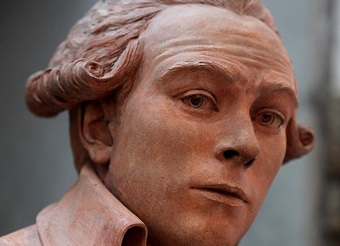
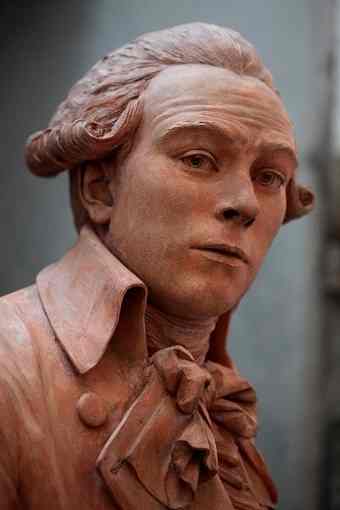
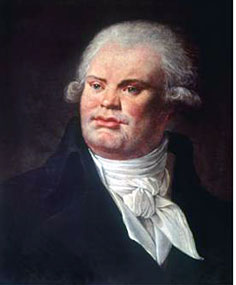
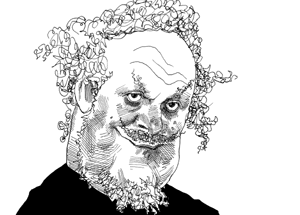
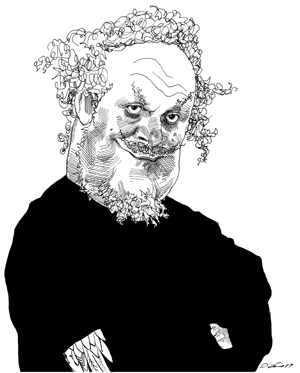 When Richard Nixon died, some op-ed or other bemoaned that his death was used as an occasion to forget, not to forgive. I thought the same when William F. Buckley died, and even Christopher Hitchens (a few people like
When Richard Nixon died, some op-ed or other bemoaned that his death was used as an occasion to forget, not to forgive. I thought the same when William F. Buckley died, and even Christopher Hitchens (a few people like 